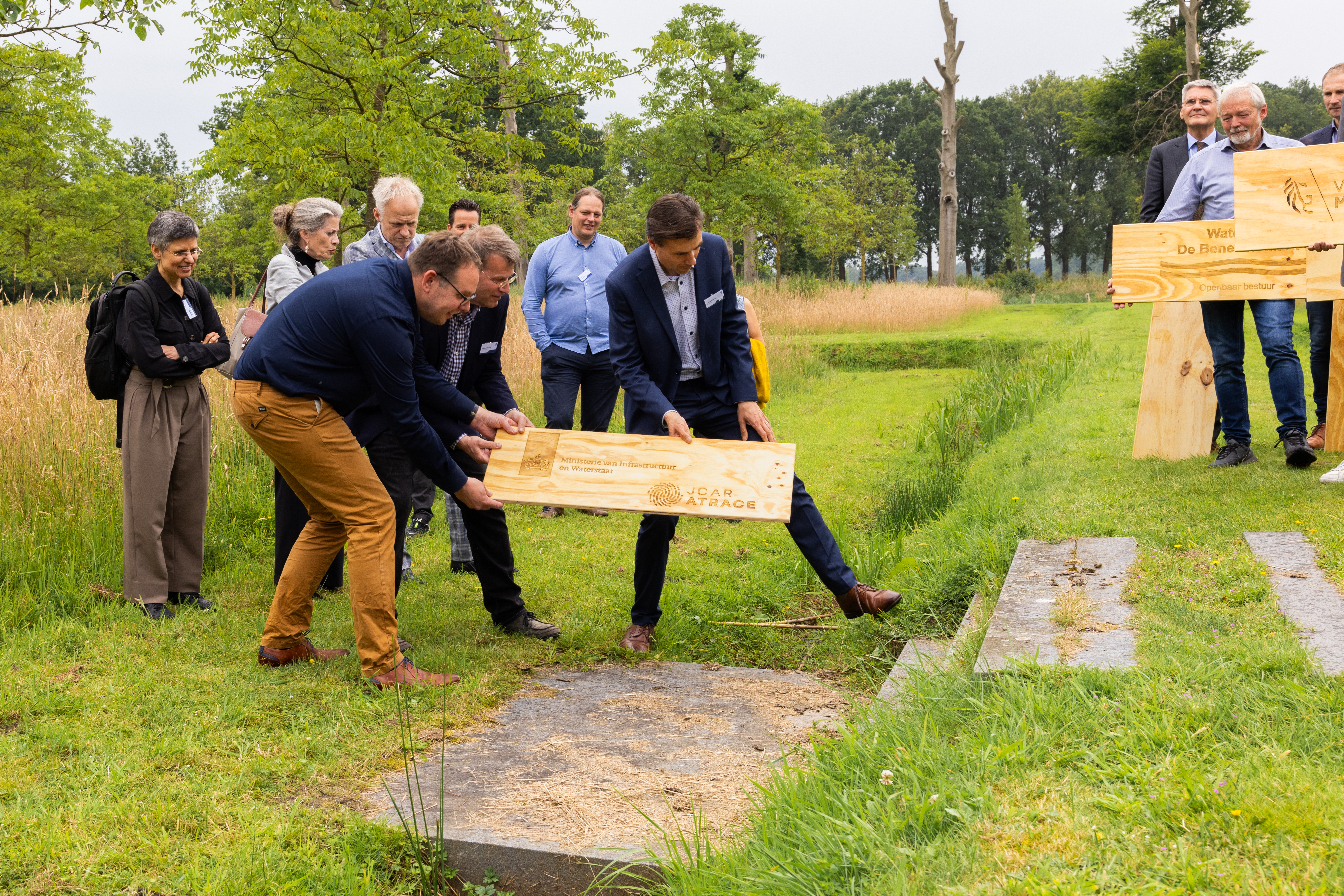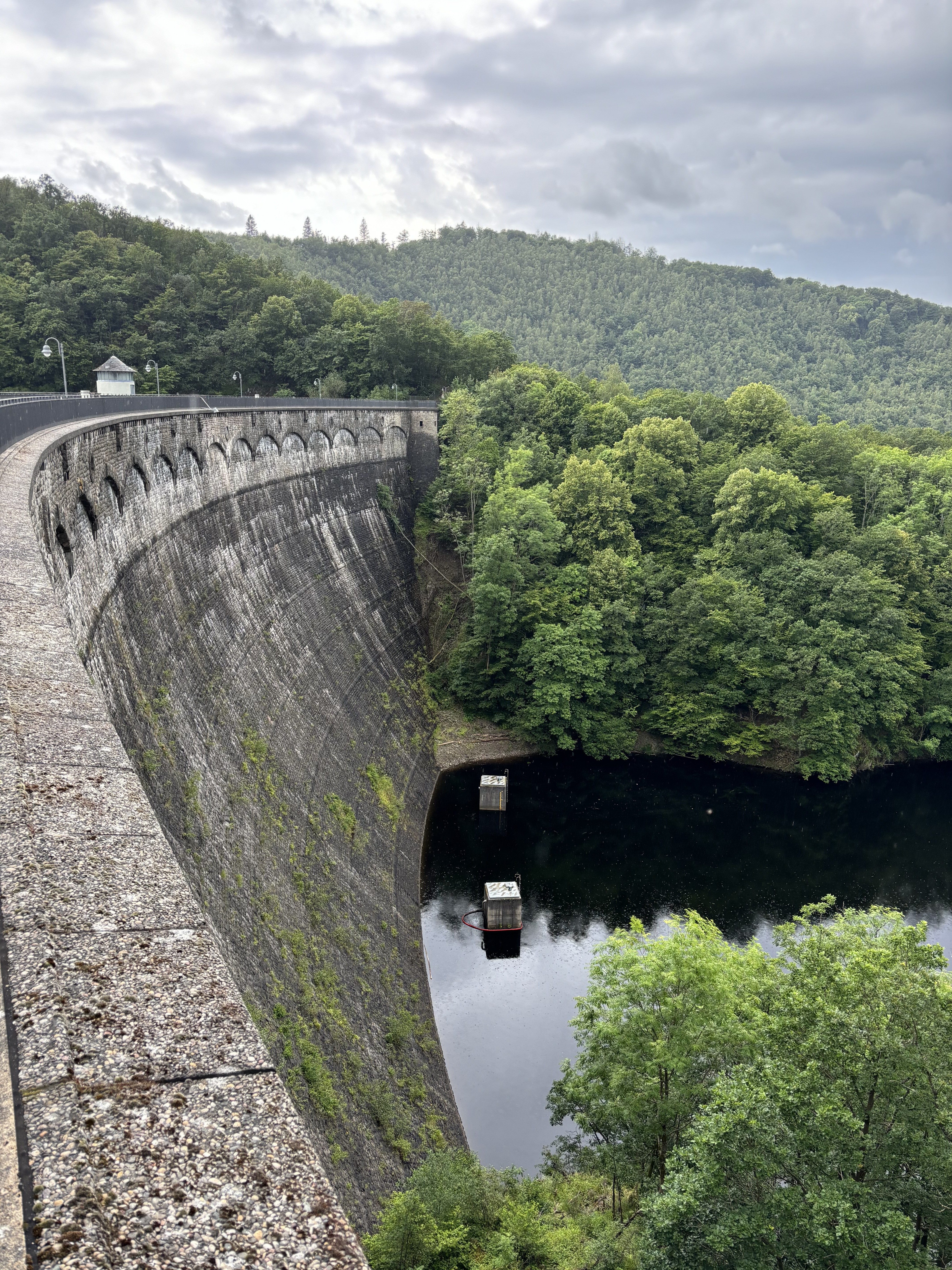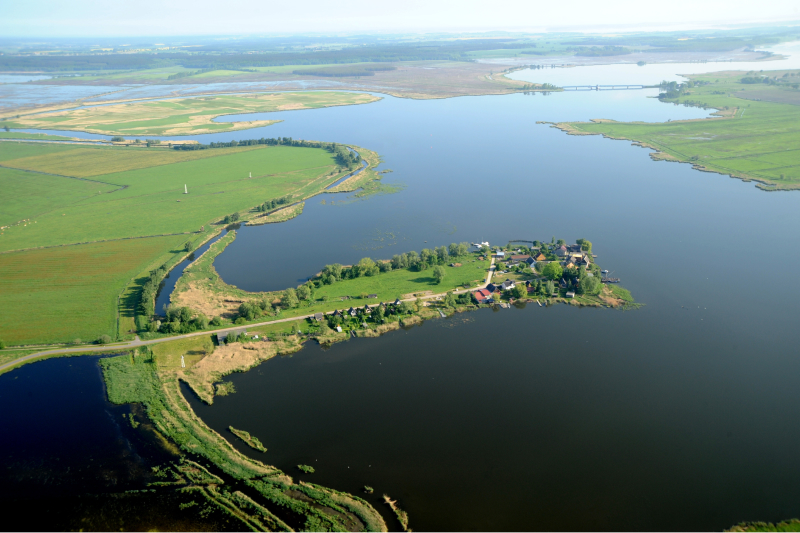Long term research topics
Explore the joint long-term research that will be carried out among the partner institutions in the scope of the knowledge agenda of the programme. Eight long-term researches will start in parallel from the end of 2024.

VU Amsterdam
Assessing trade-offs between early action and long-term flood adaptation under climate- and socio-economic change
Partner organizations involved
GFZ Potsdam, University of Liège, Deltares
Regions covered by the study
Limburg – NRW / Maas-Nord & Süd, Wallonie
Research question
This research will assess trade-offs between forecast-based action measures and long-term flood adaptation under increasing risk from climate-and socio-economic change
Short description
The researcher will address present and future uncertainty in early warning systems and assess how this influences the effectiveness of early action. To quantify this the researcher will create a detailed modeling framework to evaluate long-term and forecast-based adaptation strategies in response to increasing flood risk and uncertainty. Additionally, the researcher will assess the socio-economic and behavioral factors that influence early actions and evaluate various policy scenarios that combine long-term and forecast-based measures.
Keywords
Early warning systems. Emergency response, adaptation measures
VU Amsterdam
Assessing trade-offs between early action and long-term flood adaptation under climate- and socio-economic change
LIST
Using experimental catchment data and machine learning to benchmark hydrological models for hydrological extremes
LIST
Using experimental catchment data and machine learning to benchmark hydrological models for hydrological extremes
Partner organizations involved
University of Luxemburg, TU Delft, Deltares
Regions covered by the study
Experimental basins in Luxembourg, translated to JCAR ATRACE river basins
Research question
To what extent is our hydrological conceptualization capable to represent the hydrological response during extreme dry and/or wet weather events?
Short description
During extreme weather conditions like floods and droughts, water movement can be controlled by processes that are hard to see during normal flow. Using over 20 years of data from a network of experimental catchments, along with existing knowledge, the researcher will test hydrological models and study water movement during extreme events across different types of geologies. By applying machine learning techniques, the researcher will identify the weaknesses in traditional models to simulate these events. The goal is to improve hydrological models, providing better tools for understanding extreme events and contributing to stronger risk management strategies.
Keywords
Machine learning, conceptualization, experimental catchments
University of Liège
Impacts of hydrological hazards in the business sector
Partner organizations involved
GFZ German Research Centre for Geosciences, Potsdam, VU Amsterdam, Deltares
Regions covered by the study
Limburg – NRW / Maas-Nord & Süd, Vesdre, Ahr
Research question
In this PhD research, the following research questions will be addressed based on data of regional catchments in Belgium, Germany, and the Netherlands:
- Which are the main components of flood losses in the business sector (e.g. impacts on buildings, equipment, stock; business interruption), and which is their relative importance?
- Which are the main drivers of flood losses in the business sector? Do they differ across regions?
- Which level of accuracy can be reached in predictive modelling of flood losses in the business sector? How do empirical (data-driven) modelling approaches compare with other approaches in terms of accuracy, reliability, and applicability?
- How do businesses recover from and adapt to hydrological risks (i.e. floods and droughts)?
Short description
For a selection of regional catchments, the research will deliver the following results:
- a questionnaire for surveying businesses, covering aspects of direct and indirect flood losses, recovery process and adaptation to hydrological hazards,
- a structured database containing the surveyed variables,
- a deeper understanding of the main components of flood losses and damage mechanisms in the business sector, disaggregated amounts of losses, drivers of losses, recovery, and adaptation of businesses to hydrological hazards,
- a new flood loss model calibrated for the business sector in selected regional catchments and thus enabling transboundary model application,
- new insights into effects of hydrological and multiple risks (e.g., flood following multi-year drought and pandemic) in the business sector.
Keywords
Flood losses to business sector, hydrological risks

RWTH Aachen
Reservoir operation under a changing future
University of Liège
Impacts of hydrological hazards in the business sector
RWTH Aachen
Reservoir operation under a changing future
Partner organizations involved
Deltares, University of Liège, GFZ Potsdam
Regions covered by the study
Rur river basin (Limburg – NRW / Maas-Nord & Süd) and Meuse
Research question
How do the Eifel reservoirs contribute to the flood and drought conditions in the international Meuse river catchment and how could operating these reservoirs mitigate the vulnerability of the basin to climate and demographic changes?
Short description
In collaboration with Wasserverband Eifel-Rur, the researcher will develop more adaptive and resilient operating rules for managing dams in the Eifel region, considering future environmental and socio-economic changes. The research aims to answer the following key questions:
- How do the Eifel reservoirs contribute to managing floods and droughts in the Meuse catchment compared to other reservoirs in Belgium and France?
- Can the current reservoir operating rules be improved to a more advanced, demand-driven system that enhances dam resilience? Could this help improve flood protection and drought management now and in the future?
- What are the key requirements for sustainable and climate-adaptive river regulation? What long-term, multidisciplinary impacts should be considered?
Keywords
Climate change, reservoir management, optimization
RWTH Aachen
Reservoir operation under a changing future
Partner organizations involved
Deltares, University of Liège, GFZ Potsdam
Regions covered by the study
Rur river basin (Limburg – NRW / Maas-Nord & Süd) and Meuse
Research question
TBD
Short description
TBD
Keywords
Climate change, reservoir management, optimization
UTwente
How collaboration contributes to improved flood and drought risk management in transboundary regional river basins
UTwente
How collaboration contributes to improved flood and drought risk management in transboundary regional river basins
Partner organizations involved
University of Osnabruck, Deltares
Regions covered by the study
All JCAR ATRACE basins
Research question
How can collaboration contribute improve flood and drought risk management in transboundary regional river basins?
Short description
This PhD researcher will investigate how different collaboration mechanisms can improve flood and drought risk management in transboundary river basins. The goal is to identify effective strategies and conditions for better transboundary water management, while fostering strategic collaboration between researchers and stakeholders. The study will address the following key questions:
- To what extent, and under what conditions, do various collaboration mechanisms enhance flood and drought risk management in transboundary regional river basins?
- How can JCAR ATRACE researchers and stakeholders effectively apply different collaboration mechanisms in the selected JCAR ATRACE river basins?
Keywords
Collaboration mechanisms, flood and drought risk management, researchers and societal stakeholders
KU Leuven
Stress testing of Dutch-Flemish regional river basins
KU Leuven
Stress testing of Dutch-Flemish regional river basins
Partner organizations involved
Deltares
Regions covered by the study
Dommel and Brabantse Delta basins (N-Brabant/Limburg – Vlaanderen (Maasbekken) and Zeeland – Vlaanderen (Schelde)
Research question
How can transboundary cooperation and the comparison of regional methodologies improve stress testing, for both flood and drought hazards, in the transboundary river basins between Flanders and The Netherlands?
Short description
This research aims to improve transboundary cooperation and methodologies for stress testing, flood and drought hazard assessment, and climate adaptation planning in the Dutch-Flemish river basins. It focuses on comparing and evaluating regional methodologies applied in Flanders and The Netherlands, involving active participation from water authorities and stakeholders.
Keywords
Stress testing, transboundary coorperation, flood and drought hazards
RWTH Aachen
Reservoir operation under a changing future
Partner organizations involved
Deltares, University of Liège, GFZ Potsdam
Regions covered by the study
Rur river basin (Limburg – NRW / Maas-Nord & Süd) and Meuse
Research question
TBD
Short description
TBD
Keywords
Climate change, reservoir management, optimization
TU Delft
Towards better monitoring and modelling approaches to assess the impacts of floods on infrastructure
Partner organizations involved
University de Liège, RWTH Aachen, Deltares
Regions covered by the study
Vecht – Achterhoek / Deltarhein-Ost, Limburg – NRW / Maas-Nord & Süd and Limburg / Wallonie
Research question
- What field instrumentations can be implemented at catchment scale to facilitate the measurement of hydrological/hydraulic parameters, including precipitations, water levels, surface velocities, discharges and debris characteristics (e.g. moment of arrival, size, volumes)?
- How do these hydraulic/hydrological parameters and key debris characteristics affect the performance of critical flow conveyance structures during extreme flood events?
- How can these new data be used to improve hydrological predictions, as well as modelling of flood damage? Can we develop integrated flood mitigation measures across the catchments?
Short description
Part 1: Monitoring – Building up on an ongoing RAT study, field instrumentations will be installed at selected locations across the river basins in the Benelux and Germany to detect key hydraulic/hydrological parameters. These will include precipitations, evaporation, soil moisture, (ground)water levels, surface velocities and discharges.
Part 2: Modelling – Based on information collected in Part 1 (monitoring) and literature we will develop specific model that will improve the forecasting of the main hydraulic/hydrological parameters associated with these extreme flows. In parallel, we will conduct hydraulic simulations of flow behavior at hydraulic structures, including the formation, development and possible breakage of debris accumulations.
Part 3: Implementing – Results from points 1 and 2 will be used to improve the existing knowledge on the river basin response to extreme events, including more reliable flood prediction models and improved early-warning systems.
Keywords
Monitoring, hydrological/hydraulic parameters, critical flow conveyance characteristics
TU Delft
Towards better monitoring and modelling approaches to the impacts of floods on infrastructure

GFZ Potsdam
Understanding and preparing for High-Impact and Low-Probability flood events
GFZ Potsdam
Understanding and preparing for High-Impact and Low-Probability flood events
Partner organizations involved
GFZ German Research Centre for Geosciences, Potsdam, VU Amsterdam, Deltares
Regions covered by the study
All JCAR ATRACE basins
Research question
How to prepare for High-Impact and Low-Probability flood (HILP) events? |
Short description
This research aims to develop methodologies to understand and prepare for High-Impact/Low-Probability (HILP) flood events, which are becoming more frequent due to climate change and societal complexities. The project will focus on constructing plausible HILP scenarios, assessing their impacts on flood defenses and critical infrastructure, and designing risk reduction measures in collaboration with stakeholders. The research will address two main questions:
- What are plausible HILP events (currently and in a changing world; e.g. in 2°C warmer world)?
- Which measures are suitable to reduce disastrous consequences if they occur?
Keywords
HILP events, climate change, scenario construction

